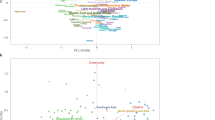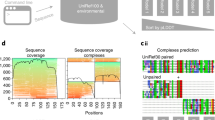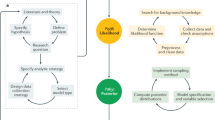Abstract
THE recent development of our knowledge of the electronic structures of molecules makes it possible to specify with reasonable certainty the particular electron with which a definite molecular ionization potential is to be associated. In an organic molecule the variation of an ionization potential with, for example, alkyl or halogen substitution reflects the change in negative charge density in that part of the molecule in which the electron is located. The existence of resonance in a molecule also considerably affects the ionization potentials of the resonating electrons. It is clear, too, that ionization potentials are intimately bound up with chemical activity, dipole moments, refractivities, combination radii, electronegativities, etc.
This is a preview of subscription content, access via your institution
Access options
Subscribe to this journal
Receive 51 print issues and online access
$199.00 per year
only $3.90 per issue
Buy this article
- Purchase on Springer Link
- Instant access to full article PDF
Prices may be subject to local taxes which are calculated during checkout
Similar content being viewed by others
References
R. S. Mulliken, J. Chem. Phys., 3, 506–14 (1935).
Author information
Authors and Affiliations
Rights and permissions
About this article
Cite this article
SUGDEN, T., WALSH, A. & PRICE, W. Ionization Potentials of Polyatomic Molecules. Nature 148, 372–373 (1941). https://doi.org/10.1038/148372c0
Issue Date:
DOI: https://doi.org/10.1038/148372c0
This article is cited by
-
Some quantum mechanical indices of reactivity
Bulletin of the Academy of Sciences of the USSR Division of Chemical Science (1975)
-
Measurement of Appearance Potentials of Ions Produced by Electron Impact, using a Mass Spectrometer
Nature (1950)
-
Structures of Ethylene Oxide and Cyclopropane
Nature (1947)
Comments
By submitting a comment you agree to abide by our Terms and Community Guidelines. If you find something abusive or that does not comply with our terms or guidelines please flag it as inappropriate.



